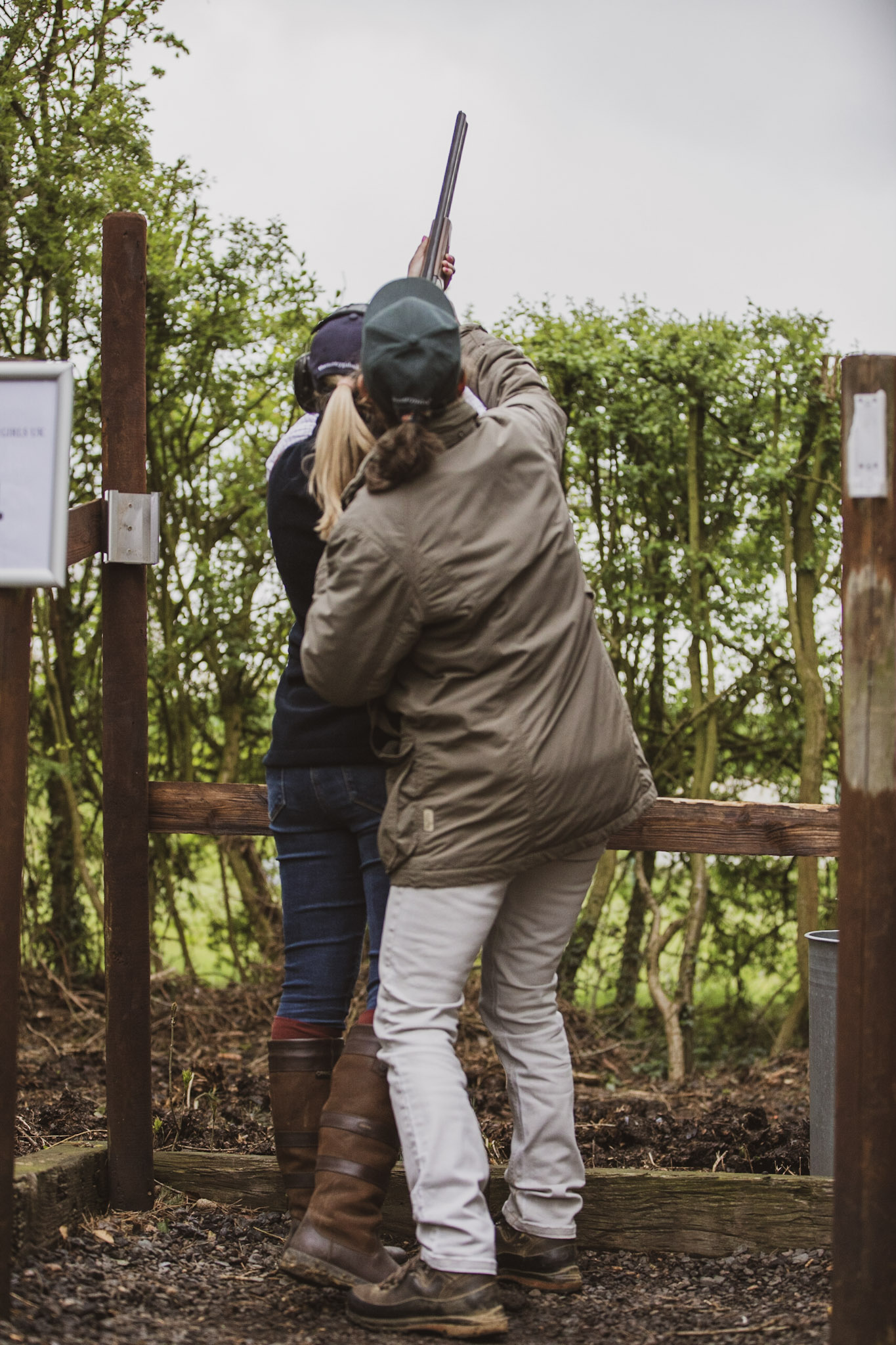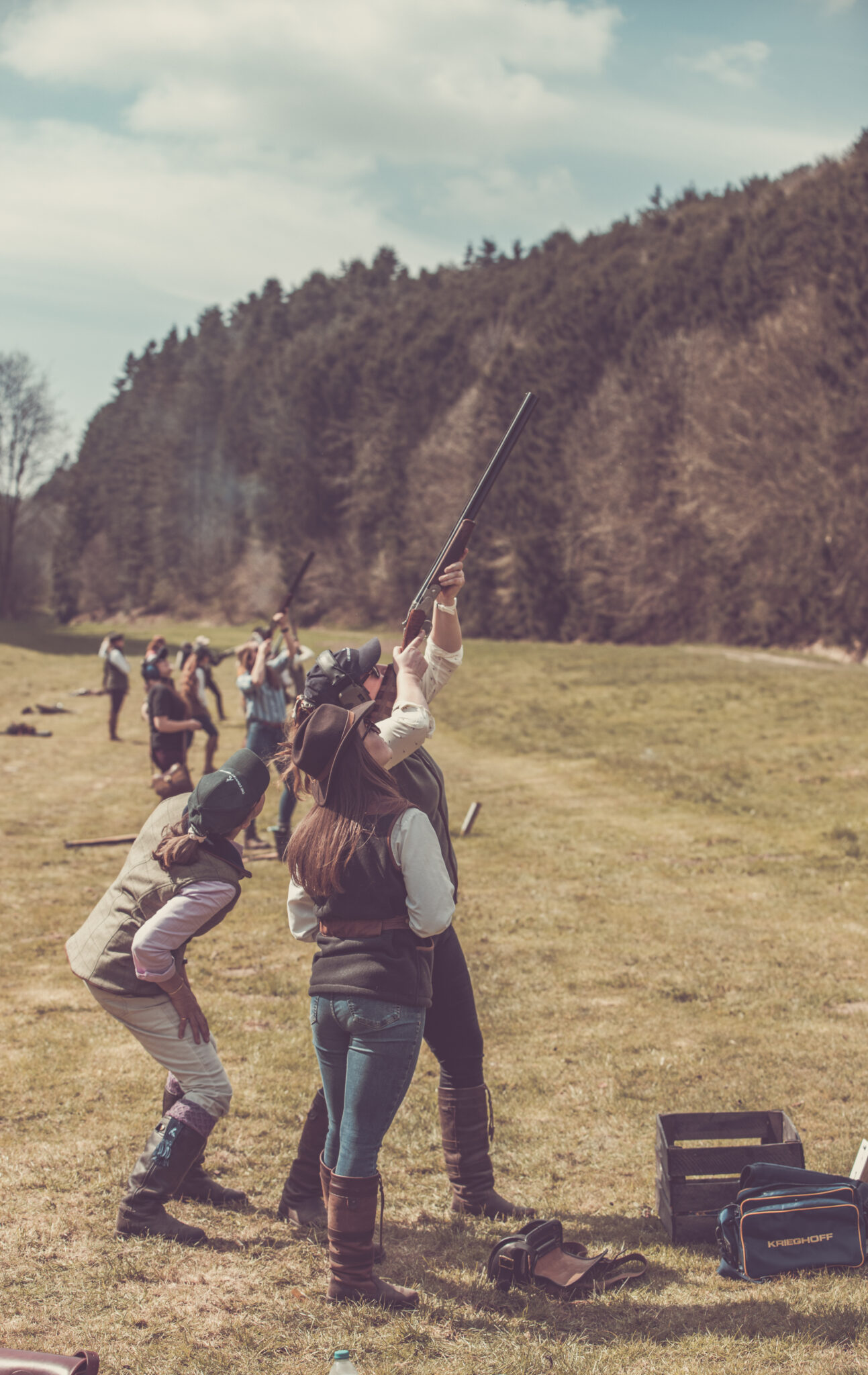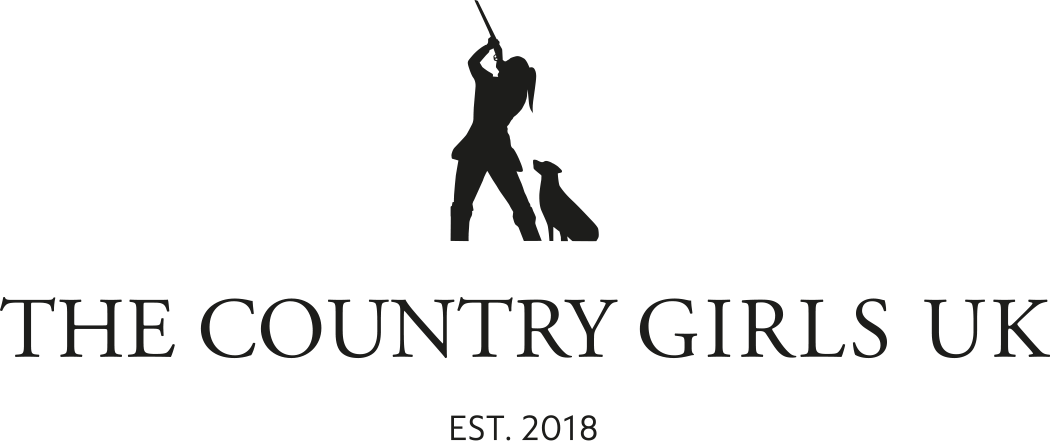What qualities should you look for in a great shooting coach?
Getting the Basics Right
It goes without saying a good shooting coach needs to have detailed technical knowledge of their sport and discipline, so every coach’s tool kit should include the following as a minimum:Gun safety – This is essential and a coach should never be afraid to address this in a calm and professional way, explaining why something was unsafe and the correct way to do it.
- Eye dominance – A good understanding of this is vital as this can have a significant effect on shooting performance. A coach should be able to assess a client’s/athlete’s eye dominance and how best to proceed for that individual in relation to which shoulder to shoot off or adaptations to the shooting glasses etc.
- Working knowledge of guns and gun fit – Understanding the appropriateness of a gun for an individual and their needs or discipline is exceedingly important; also understanding good gun fit is crucial to successful shooting; poor fit could be the reason for missing targets or even apparent eye dominance issues.
- Technique – Having a full understanding of the technique allows a coach to know what has gone wrong and why and how to fix it. It is of limited help merely being told you are “behind a target”.
- Equipment – Having knowledge of specialist equipment, including cartridges, appropriate for the individual and their requirements, is important part of the shooting coach package.
The Philosopher: I Am – Therefore I Coach!
Shooting was my hobby that evolved in to a second career, without, I have to say, a great deal of planning! I did two courses and slowly built up a client base. Having participated in several high performance coaching programmes since, I learned considerably more about the job! A key point was that great coaches have a “coaching philosophy” based on their values; they may not convey this directly, but it guides them in their day-to-day coaching practice. I hadn’t considered this originally although without realising it I was already influenced by my experiences with coaches I’d worked with as an athlete, particularly the bad ones! I knew I wanted to be the opposite of them. I knew also how I would want to be treated, were I an athlete again today. So I appreciate the importance now of a coaching philosophy to the modus operandi of a coach.
My own coaching philosophy is:
To be inclusive and to coach with passion, respect and integrity; to make my sessions enjoyable and fun. I believe in creating a safe environment for athletes/clients to experiment, learn and develop their skills and through collaboration become the best version of themselves.
Through the coach development programmes, I have gained a much deeper insight in to what is required to be a great coach; for a start it is so much more than teaching the technicalities of a sport. In addition to the coaching philosophy, here are my thoughts as a coach and a former athlete, on a few of the things that distinguish a good coach from a great coach; indeed this is what I am aspiring to!
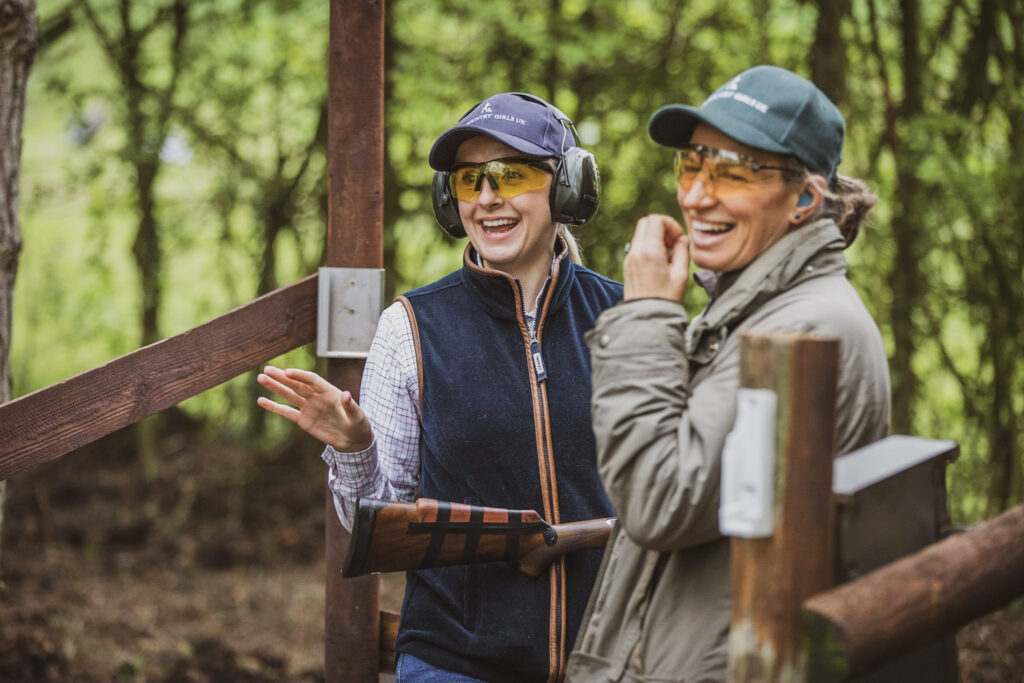
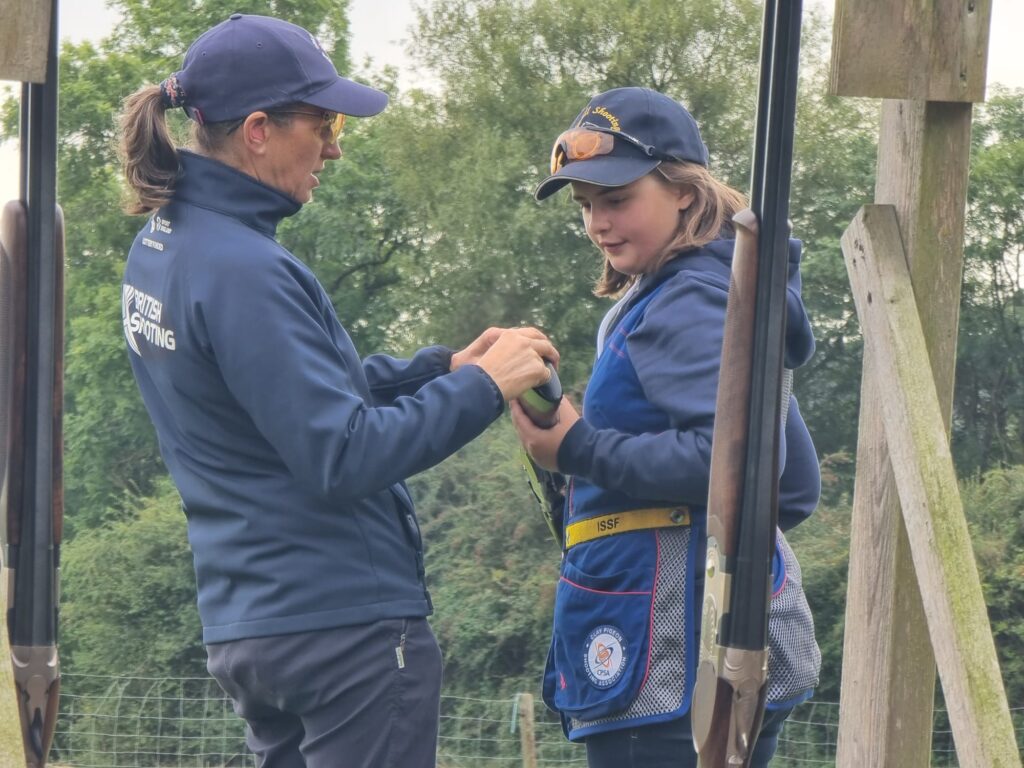
Talk the Talk!
The ability to communicate effectively plays a vital part in everything a coach does. It is important that the first meeting with a client is a good experience. A great coach should establish why a client/athlete has come to them, what level they are at, what they have done in the past, what they want to achieve in the future and their motivation for this; then they should discuss how the coach is able to help. There may even be bad news to deliver at the first session, such as their gun doesn’t fit them, sadly not an uncommon situation! So very good communication is required here to get the right messages across in the right way. This is the start of building a relationship and a rapport; mutual respect and trust will hopefully follow as the learning and understanding process begins.
Life Begins at the End of Your Comfort Zone!
A great coach is able to create a good learning environment. Part of my philosophy is to create a “safe” environment where clients/athletes feel free to experiment with their shooting, i.e. trying different hold points, foot positions, kill points, timing etc without the fear of failure or fear of judgement from me; thus missing becomes a learning opportunity. I push them to shoot out of their comfort zone, but with the mind set that they focus only on what I ask of them without concerning themselves with the outcome i.e. on a “hit or miss” basis. By having “permission” to miss, they are unhindered and able to shoot freely. I find by removing the pressure to hit the target, the focus is on the process not the outcome, but frequently the outcome is a good one. Taking it a step further, if you shoot out of your comfort zone enough, then the boundary stretches and your training starts to fall within your new zone. Happy days!
Get that Shooting Feeling!
The job of a coach is to improve skill ability and understanding; to do this a great coach will give effective feedback but will also want their client/ athlete to have a high degree of self-awareness so they can recognise for themselves what constitutes a good shot and also a poor shot. I try to nurture self-awareness by asking clients/athletes what a particular shot felt like. I like using the concept “feeling” as a good shot and a bad shot do feel very different. I ask the client/athlete to recreate the feeling they get when performing a well-executed shot just before they take the next shot. I call it “feelisation”. It’s like visualisation with extras! It’s more than seeing the shot in your mind with the target in pieces; it allows you to focus on the movement, pace, fluidity, positivity and timing of the shot all fused together in one ball of internal feedback rather than thinking through each individual component of the shot whilst you are shooting. I find it frequently produces a well-executed shot.
It’s All in the Head!
A great coach will appreciate the mental challenges that shooting presents and should have knowledge of one or more models to help you with this. I focus on the importance of a solid routine; this is not just the physical routine of walking on to the stand working out your foot position, etc but as importantly, it is your mental routine too, i.e. what you are or are not thinking before calling for the target. Acceptance and Commitment Therapy (ACT), which is not as scary as it sounds, is a helpful model to work with when it comes to negative thinking or even what you might believe is positive thinking; put very simply it is a matter of recognising helpful and unhelpful thoughts and then learning how to deal with them.
A Bolt out of the Blue!
Does a coach need to have performed at a high level to be a great coach? I sometimes worry because I haven’t won an Olympic Medal that I’m not a good enough coach but my husband is quick to remind me that Usain Bolt’s coach could not run as fast as Usain Bolt! For me, having performed Olympic Skeet at an international level helps my coaching. Coaching can be challenging which doesn’t mean you’re not up to the job, but a great coach recognises at what point to move a client/athlete to the next stage.
Curiosity Killed the Cat But May Not Kill the Coach!
A great coach is open-minded and is looking to learn more and develop their skills further. They will be curious rather than judgemental. If a client/athlete is not performing well they will ask questions and not dismiss them for a poor performance. There may be a reason for what is happening that is not apparent. Great coaches may not have all the answers but will be prepared to try different things and while they won’t get everything right all the time they won’t be afraid to acknowledge that.
Mirror, Mirror on the Wall, who is the Greatest Coach of All?
A great coach has many other characteristics; they will be organised and plan their sessions; they will be inclusive, supportive, enthusiastic, patient, observant and positive. Importantly they will understand the value of reflection on the performance of their client/athlete; even more crucially they will know the value of self-reflection on their own performance. This is where the real difference lies between a good and great coach!
Blog written by Nicki Wakeford
